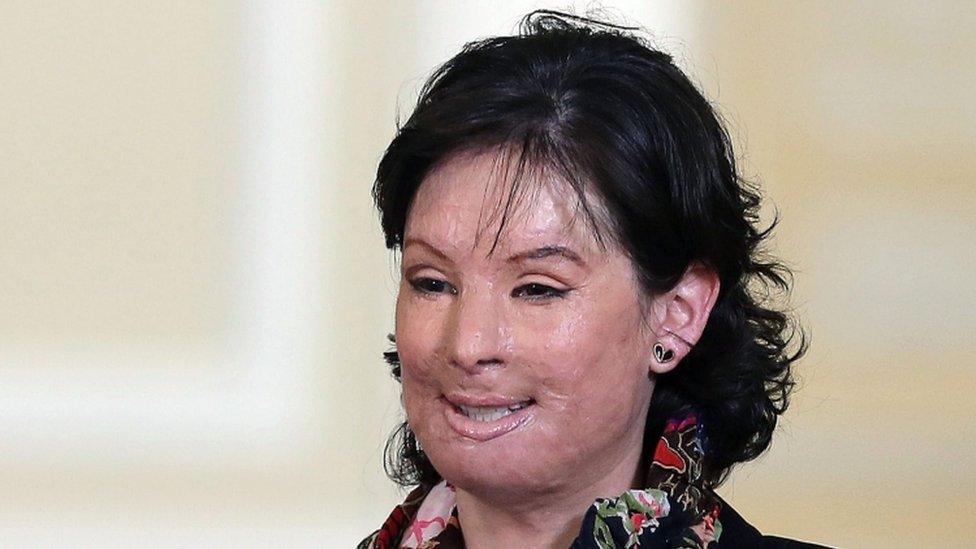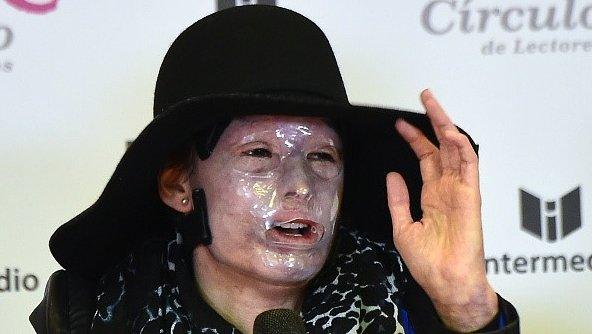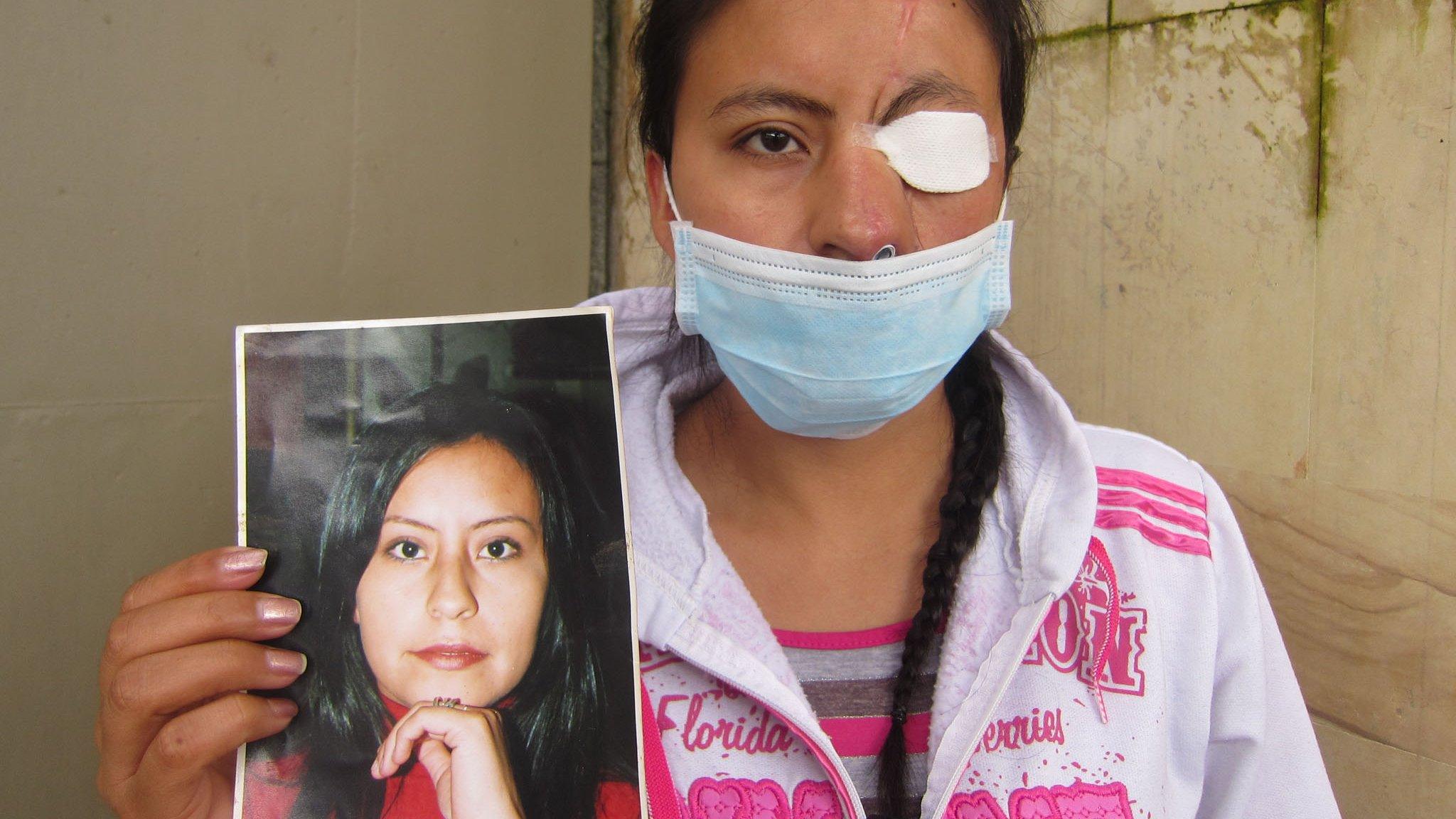Colombia's President Santos enacts tougher law on acid attacks
- Published

Natalia Ponce de Leon showed her face for the first time at the signing, after undergoing at least 20 operations
Colombia's President Juan Manuel Santos has signed a law that imposes tougher sentences on the perpetrators of acid attacks.
Anyone convicted of such crimes will now serve between 12 and 50 years in jail.
Acid attacks have become a major concern in Colombia over the past decade.
About 100 people - most of them women - are estimated to be targeted every year.
The attackers can be male or female, ranging from disgruntled neighbours to jealous partners.
The law had been approved by the Senate in November.
The enacting ceremony at the presidential palace in Bogota was attended by several victims of acid attacks.
'Absurd attacks'
Among them was Natalia Ponce de Leon, after whom the new law was named.
She became a high profile campaigner after having her face and other parts of her body disfigured by sulphuric acid in March 2014.
She was targeted by a neighbour, Jonathan Vega, who had become obsessed with her and got angry after having his advances rejected.
"The new law helps remedy a big legal loophole and will help prevent the absurd attacks that so many of us have suffered," said Ms Ponce.

Mr Santos praised Natalia Ponce for her courage and strength

The vast majority of victims of acid attacks in Colombia are women
Mr Santos praised the fight of the victims for their rights and for new legislation.
"We don't want to see more people destroyed," he said at the ceremony.
Under the new law, those who "use any type of chemical agent" to hurt someone will be jailed for between 12 and 20 years, but the sentence can increase to up to 50 years in prison for those who permanently disfigure their victim.
Previously, acid attacks fell under the category of physical aggression, such as beatings, and sentences were relatively short.
Until now, very few people have been convicted for such attacks.
- Published26 November 2015

- Published5 April 2014

- Published31 May 2012
